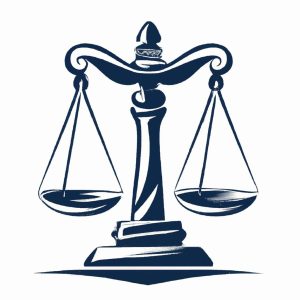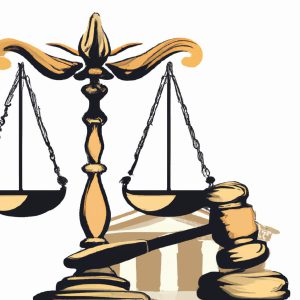In the realm of estate planning, the question often arises: can I write my own will and have it notarized? This seemingly simple inquiry belies the intricate legal considerations and potential pitfalls that can arise when attempting to draft such a crucial document without professional guidance. At Morgan Legal Group in New York City, we specialize in guiding clients through the complexities of Wills, trusts, and estate planning, ensuring that their final wishes are properly documented and legally sound. Join us as we delve into the nuances of DIY will drafting and explore the importance of seeking expert counsel in safeguarding your legacy.
Understanding the Legalities of Writing Your Own Will and Notarizing It
When it comes to the legalities of writing your own will and having it notarized, it is important to understand the process and requirements involved. While it is possible to write your own will, there are certain guidelines that must be followed to ensure its validity. One of the key considerations is whether the will meets the legal requirements set forth by the state in which you reside. It is essential to consult with an experienced attorney to ensure that your will is legally binding and properly executed.
Having your will notarized is an important step in the process of estate planning. A notary public is an impartial witness who verifies your identity and ensures that you are signing the document willingly and knowingly. Notarizing your will adds an extra layer of protection against potential challenges to its validity in the future. It is recommended to work with a qualified attorney to draft your will and guide you through the process of notarization to ensure that your final wishes are carried out according to your intentions.
Potential Risks and Consequences of Drafting Your Own Will
While it is possible to draft your own will and have it notarized, there are several potential risks and consequences to consider before doing so. Inaccuracies or mistakes in the wording of your will could lead to confusion or disputes among your beneficiaries after you pass away. Without the guidance of a legal professional, you may overlook important details or fail to address all of your assets and possessions in your will.
Additionally, DIY wills may not comply with state laws or regulations, which could result in your will being contested or invalidated during the probate process. It’s important to carefully consider the complexity of your estate and the potential impact of drafting your own will before making a decision that could have long-lasting consequences for your loved ones.
Factors to Consider Before Attempting to Notarize Your Own Will
Before attempting to notarize your own will, it is important to consider several key factors to ensure the validity and legality of the document. Notarizing your own will can be a complex and risky process, so it is essential to proceed with caution and seek professional guidance if needed.
Some include:
- Legal requirements: Ensure that your will meets all legal requirements in your state to prevent any potential challenges or disputes in the future.
- Complexity of your estate: If your estate is complex or involves significant assets, it may be beneficial to seek the assistance of an experienced estate planning attorney to ensure that your will accurately reflects your wishes.
- Witnesses: In some states, witnesses may be required to sign and attest to the validity of your will. It is important to understand the witness requirements in your state before attempting to notarize your own will.
Consulting with a Professional Estate Planning Attorney for Proper Guidance and Execution
While it is possible to write your own will and have it notarized, it is important to consider the potential pitfalls of doing so without the guidance of a professional estate planning attorney. A will is a legal document that outlines your wishes for the distribution of your assets after your passing. Without the proper legal knowledge and guidance, there is a risk that your DIY will may not be legally valid, leading to potential disputes and complications for your loved ones.
Consulting with a professional estate planning attorney provides numerous benefits for ensuring that your wishes are properly documented and executed. An experienced attorney can offer valuable guidance on complex issues such as estate taxes, asset distribution, and guardianship for minor children. Additionally, an attorney can help you navigate the legal requirements for creating a valid will, ensuring that your final wishes are carried out in accordance with the law.
Q&A
Q: Can I write my own will and have it notarized?
A: Yes, you can write your own will and have it notarized, but there are certain guidelines you must follow to ensure its legality.
Q: What should I include in my will?
A: Your will should clearly outline how you want your assets to be distributed after your death, designate an executor to carry out your wishes, and include any specific requests or instructions you may have.
Q: Is it necessary to have a lawyer draft my will?
A: It is not necessary to have a lawyer draft your will, but it is recommended to seek legal advice to ensure your will meets all legal requirements and to avoid potential challenges in the future.
Q: Can I notarize my own will?
A: No, you cannot notarize your own will. You will need to have a neutral third party, such as a notary public, witness and notarize your signature to verify its authenticity.
Q: What happens if my will is not properly executed?
A: If your will is not properly executed, it may be deemed invalid, and your assets may be distributed according to state laws rather than your wishes. It is important to follow all legal requirements to ensure your will is legally binding.
Closing Remarks
In conclusion, writing your own will and having it notarized is certainly a possibility, but it is important to approach the process with caution and ensure that the document meets all legal requirements. Consulting with a legal professional may provide peace of mind and help ensure that your final wishes are carried out smoothly. Remember, a will is a crucial document that outlines how your assets are distributed after your passing, so it is worth taking the time and effort to create it correctly. With the right approach, you can create a will that reflects your desires and provides clarity for your loved ones.
Article Title: Can I Write My Own Will and Have It Notarized?
Meta Title: Writing Your Own Will and Getting It Notarized – What You Need to Know
Meta Description: Learn the ins and outs of writing your own will and getting it notarized. Find out about the benefits, practical tips, and potential pitfalls of this process.
Introduction:
Writing a will is an essential step in planning for the future and ensuring that your assets and property are distributed according to your wishes. However, many people are unsure about the process of creating a will and whether or not they can do it themselves.
There is a common misconception that only lawyers can draft and notarize wills, but the truth is that in most cases, anyone can write their own will and have it notarized. However, it is not a decision to be taken lightly and requires careful consideration and understanding of the legal requirements.
In this article, we will discuss the question “Can I write my own will and have it notarized?” and provide you with all the necessary information to make an informed decision about this important legal document.
Benefits of Writing Your Own Will:
1. Cost-effective:
One of the main benefits of writing your own will is that it can save you a significant amount of money in legal fees. Hiring a lawyer to draft a will can be expensive, especially for those with limited assets or complicated family situations. By writing your own will, you can avoid these costs and use the money for other important purposes.
2. Customization:
When writing your own will, you have complete control over what is included and how your assets will be distributed. This is particularly beneficial for those with specific wishes or unique family dynamics that may not be adequately addressed by a generic will drafted by a lawyer. You can customize your will to suit your individual needs and ensure that your wishes are carried out as you intend.
3. Flexibility:
Writing your own will gives you the flexibility to make changes at any time. Life is constantly changing, and your will should reflect those changes. By drafting your own will, you can easily revise and update it as needed without incurring additional legal fees.
4. Privacy:
Another benefit of writing your own will is that it remains private. When you hire a lawyer to draft your will, they will have access to personal information and details about your assets. This information can be kept confidential by notarizing your will, but it still requires the involvement of a third party. By writing your own will, you can keep your personal matters and financial information private.
Practical Tips for Writing Your Own Will:
1. Understand the legal requirements:
Before writing your own will, it is crucial to understand the legal requirements in your state or country. These can vary, so be sure to do thorough research to ensure your will is valid and legally binding.
2. Use a template or online service:
If you are unsure of how to start writing your will, there are many templates and online services available that can guide you through the process. These tools can help ensure that your will covers all the necessary legal elements and is properly formatted.
3. Be specific and clear:
When writing your will, be as specific and clear as possible. This will help reduce the risk of any confusion or disputes arising after your passing. Clearly state your beneficiaries, their relationship to you, and what you wish to leave them. It’s also important to name an executor who will be responsible for carrying out your wishes.
4. Consider seeking legal advice:
While it is possible to write your own will, it is always a good idea to seek legal advice or have a lawyer review your will before finalizing it. They can provide valuable insights and ensure that your will is in compliance with all legal requirements.
Potential Pitfalls of Writing Your Own Will:
1. Lack of legal knowledge:
Writing your own will requires a basic understanding of legal principles and terminology. If you are not familiar with the legal process, you may not be aware of all the necessary elements that need to be included in your will. This could result in an invalid will or one that does not accurately reflect your wishes.
2. Disputes and challenges:
Another potential pitfall of writing your own will is that it may be vulnerable to disputes and challenges from family members. This is especially true if the will is not clear or if there are any errors or inconsistencies. In some cases, a lawyer-drafted will may be more airtight and less likely to be contested.
3. Notarization requirements:
In order for a will to be valid, it must be notarized. Notarization is the process of witnessing the signing of the will by a notary public and having them confirm the identity of the testator (the person making the will). Not following the proper notarization procedures can result in an invalid will.
Conclusion:
In conclusion, while it is possible to write your own will and have it notarized, it is important to understand the potential risks and benefits of doing so. Carefully consider your situation, seek professional advice where necessary, and ensure that the legal requirements are met to avoid any complications in the future.
By following the practical tips outlined in this article and having a good understanding of the legal requirements, you can write your own will and have peace of mind knowing that your assets will be distributed according to your wishes. Remember to review and update your will periodically as your circumstances change, and ensure that it is notarized to make it legally binding.





